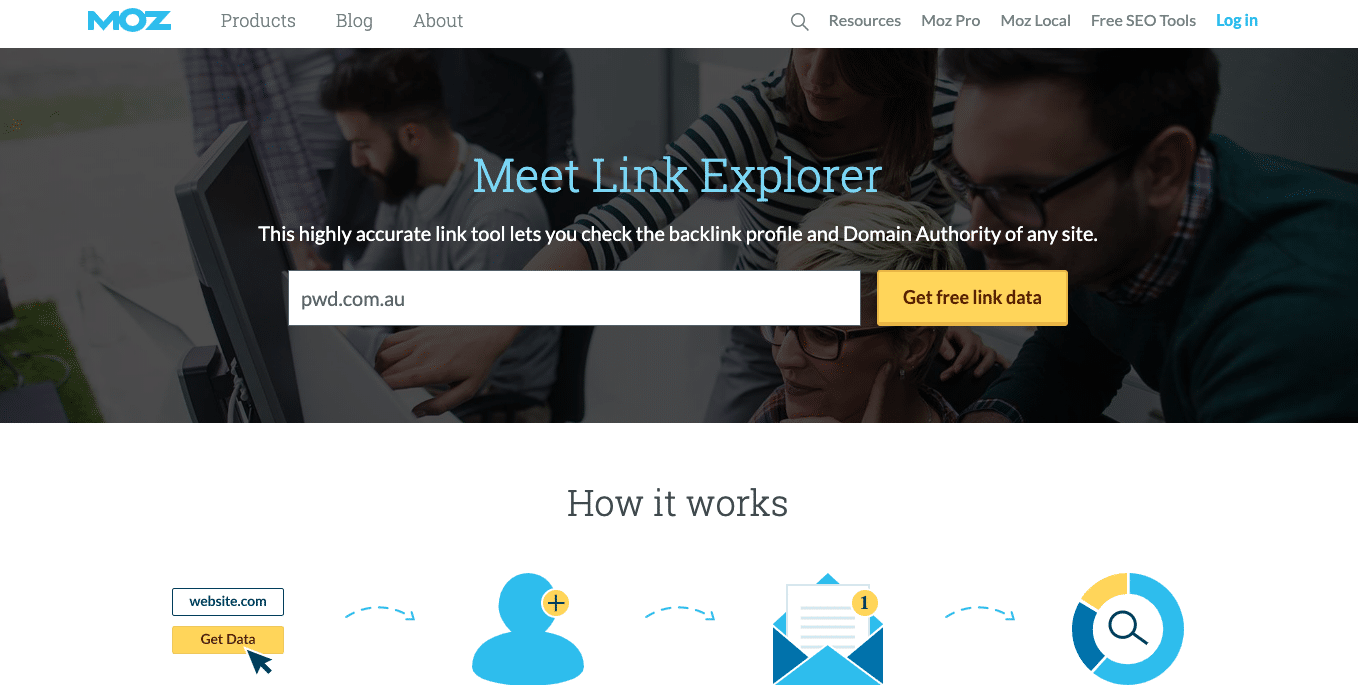9 WAYS TO INCREASE YOUR DOMAIN AUTHORITY
The main goal of any SEO strategy is to get your website to the number 1 position on Google. Of course, there are many factors that go into landing yourself on this highly coveted spot. One of which is your level of domain authority.
Your domain’s authority is a categorisation metric that’s used to predict how well a site could potentially rank based off of its content. Moz developed this handy tool to measure how successful websites are in their trudge to the first page of Google. This tool measures your level of your domain’s authority based off of a score between 1 to 100, 100 being the highest level of achievement. Anything above 60 is deemed to be excellent.
Improving your authority can be a fairly lengthy process but there are many actionable points for you to employ. By including these 9 strategies into your overall website development and SEO plan, your domain’s authority will start to increase and so will your SERP ranking!
How is Your Domain Authority Calculated?
To calculate your domain’s authority, Moz developed a platform called Open Site Explorer. When you visit this site, all you have to do is enter your website’s link in the search bar like below:

From there, Moz will compile a list of data and metrics to give you your overall authority score out of 100. The closer you get to 100, the more traffic you can see coming to your site and the better off your content will be.
Moz looks at the following 6 factors to determine your site’s level of authority:
- MozRank
- MozTrust
- Linking Profile
- Content Quality
- Social Shares
- SEO Optimisations
Overall, Moz takes into consideration the quality of your content and how it engages users on all levels. For this very reason, your domain’s authority is an integral part of your entire SEO strategy.
How to Boost Your Level of Domain Authority:
1.Be Strategic with Your Domain Name
If you’re still in the beginning stages of creating your business’ website, a good rule of thumb is to pick a domain name that’s relevant to your content.
Take our website, for example. Our domain name relates to our agency’s and is easily remembered by users. Your domain name should be readily recalled and should tell users exactly what they can expect from spending time on your website.
If you have already created your website, it’s best to ensure that your domain name doesn’t expire anytime soon. Having an expired domain could mean that you’re missing out on a potential lead who is just waiting to make a purchase.

2. Pay Attention to Your On-Page SEO Optimisations
As we’ve already established, your domain’s authority and SEO go hand-in-hand. Unsurprisingly, this means that on-page SEO plays a vital role too.
To optimise your website for on-page SEO, you have to pay attention to your site’s structure. This means looking at your title headings, heading structures, main keywords, meta descriptions, and alt text. For more insights into on-page SEO optimisations, be sure to read our article here. This will give you everything you need to know to properly get your site ready for on-page SEO.
3. Encourage High-Quality Links
For your links to be truly effective, it’s best to generate backlinks from high-quality sites. These pages carry significant ranking power and authority themselves. By getting your content featured on their sites, you’re letting Google know that your content is of the same level.
Even if increasing your domain’s authority isn’t your top priority, increasing your high-quality link building is a good thing to have just for your SEO as a whole.
4. Avoid Spammy Backlinks
Just as Google places a higher value on quality links, it seems spammy links as a big no-no. Spammy links may be a quick and easy way to generate backlinks but it could create the risk of facing ranking penalties. As a result, your site’s authority will quickly diminish.
5. Improve Your Internal Linking Strategies
Internal links will help direct visitors and search engine crawlers around your website. For your website visitors, you can use internal links to help them further along your sales funnel and to new content that could improve their user experience.
An easy way to do this is to include internal links in your blog posts. As you’re writing about a topic, make sure to suggest a related post that could considerably enhance their reading pleasure.
6. Optimise Your Content for Mobile
As we already know, mobile search is a huge player in SEO for 2019. Your website should be completely optimised for a cohesive mobile user experience. This means that your website should have an entirely responsive design that can be viewed on all devices.

7. Create Readable Content
A large part of your domain’s level of authority is the quality of your content. When you’re crafting your content marketing plan, keep in mind your target audience’s wants and needs, and what will delight them upon interacting with your site.
When you create readable content, that’s when people will get excited to come to your site and share your links. When you’ve really provided valuable information, your amount of backlinks can start to increase too.
8. Utilise Social Shares
Social signals are a huge ranking factor when it comes to promoting your content and getting your page to the top of Google. Without sharing your content on social media channels, you may run the risk of fewer website visitors. The fewer visitors you have coming to your site, the less likely it will be for Moz to give you an excellent authority score.
9. Remove Broken Links
Running a content audit to prune or improve any broken links comes highly recommended when you’re trying to boost your authority score. These 404 pages create a negative user experience and it shows Google that your content isn’t fully optimised for SEO. Both of which you should be striving to avoid.

Your domain authority is an important ranking factor to judge the overall performance of your content and website. Concentrating your time to boost your authority will only mean that your SEO will improve as a result. Who doesn’t want that?
